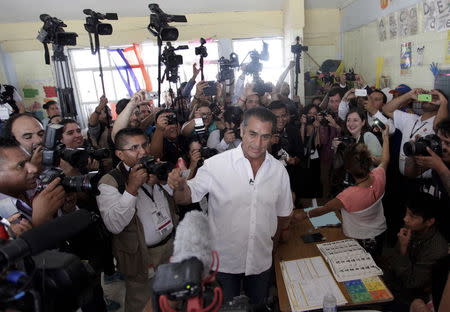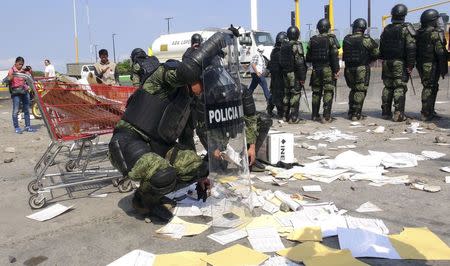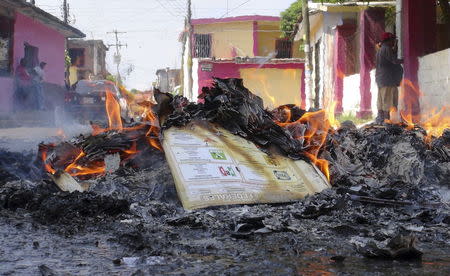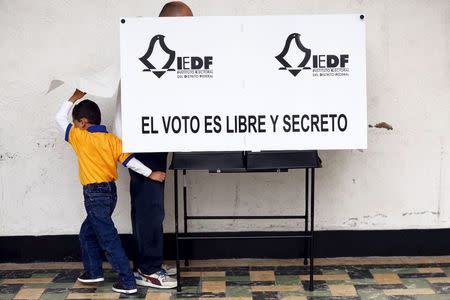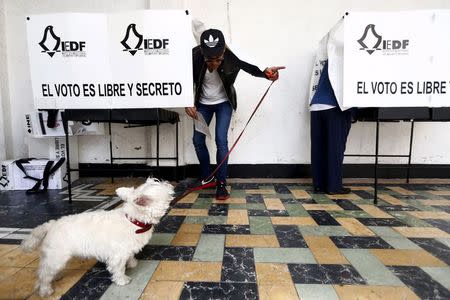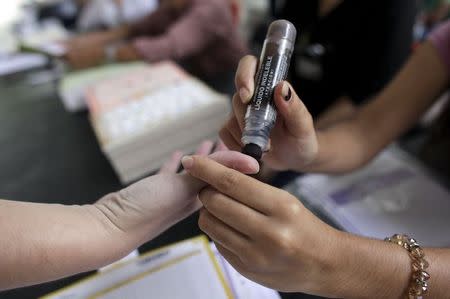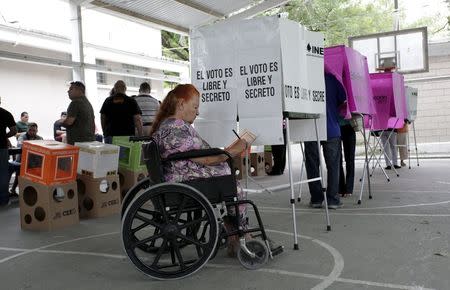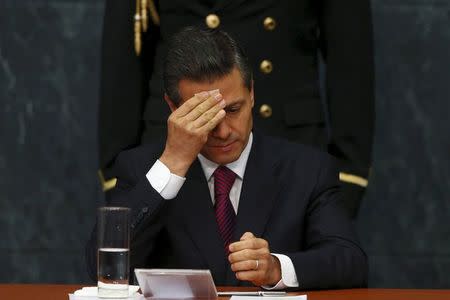Mexico's ruling party close to keeping majority despite violence, graft
By Dave Graham and Max De Haldevang MEXICO CITY (Reuters) - Mexican President Enrique Pena Nieto was close to retaining a slim majority in the lower house of Congress on Monday despite losing support in mid-term elections marked by anger over corruption, gang violence and weak economic growth. Mexicans cast votes on Sunday for the 500-strong lower house as well as nine state governorships and more than 1,000 state and municipal posts in what was seen as a referendum on Pena Nieto's rule. The Senate was not up for renewal. By Monday morning, with 85 percent of polling station returns in, preliminary results showed Pena Nieto's Institutional Revolutionary Party (PRI) and its allies in Congress had won almost 40 percent of the vote. The PRI, the Green Party and the smaller New Alliance Party had a one-seat majority of 251 seats heading into the vote, having won around 42 percent of the vote in the 2012 election. Early forecasts from Mexico's electoral authority showed the PRI and its partners winning between 246 and 263 lower house seats. However, they could benefit if votes from smaller parties who fail to get the minimum percentage needed to enter Congress are redistributed, as forecast. Jorge Buendia, head of polling firm Buendia & Laredo, said he had "no doubt" that the PRI had won just enough votes. More detailed results are not expected until Wednesday. The center-right National Action Party had 20.83 percent of the vote, results showed, one of its worst recent showings. The big loser was the leftist Party of the Democratic Revolution (PRD), which was on 10.69 percent of the vote after breakaway former leader Andres Manuel Lopez Obrador's new Morena party diluted its vote and took 8.59 percent support. Underscoring disenchantment with the PRI, a blunt, outspoken rancher who defected from the party became the first independent candidate to win a state governorship in modern Mexican history, early results showed. Jaime Rodriguez easily defeated the PRI in the northern state of Nuevo Leon after tapping into widespread discontent with established parties. "Pena Nieto has failed to live up to many promises, especially on corruption and security," said Victor Vazquez, 33, a marketing professional in Mexico City. At least seven candidates and nine campaign officials were murdered in the campaign, which was blighted by drug cartel intimidation and teachers protesting against education reforms. Pena Nieto pushed through major economic reforms early in his presidency but his image has suffered since. Stung first by international outcry over the apparent massacre of 43 students in September by a drug gang working with local police, Pena Nieto was then caught up in a conflict-of-interest scandal following revelations that he, his wife and his finance minister had bought houses from government contractors. Having fulfilled the bulk of his main legislative pledges, including measures to end the state oil and gas monopoly and open up the telecoms sector to competition, Pena Nieto is not expected to rely on Congress as much in his last three years. (Additional reporting by Gabriel Stargardter, Michael O'Boyle, Liz Diaz and David Alire Garcia; Editing by Simon Gardner, Kieran Murray and W Simon)
